Hi everyone and welcome to the new Megathread :) For my first Mega I want to share a special interest of mine: the magnetic field and how to understand its behavior intuitively.
I'm guessing most of us have played with magnets before at some point and have felt that mysterious force pushing them apart or pulling them together, depending on how the magnets are oriented toward each other. Some of you may have also seen diagrams like this
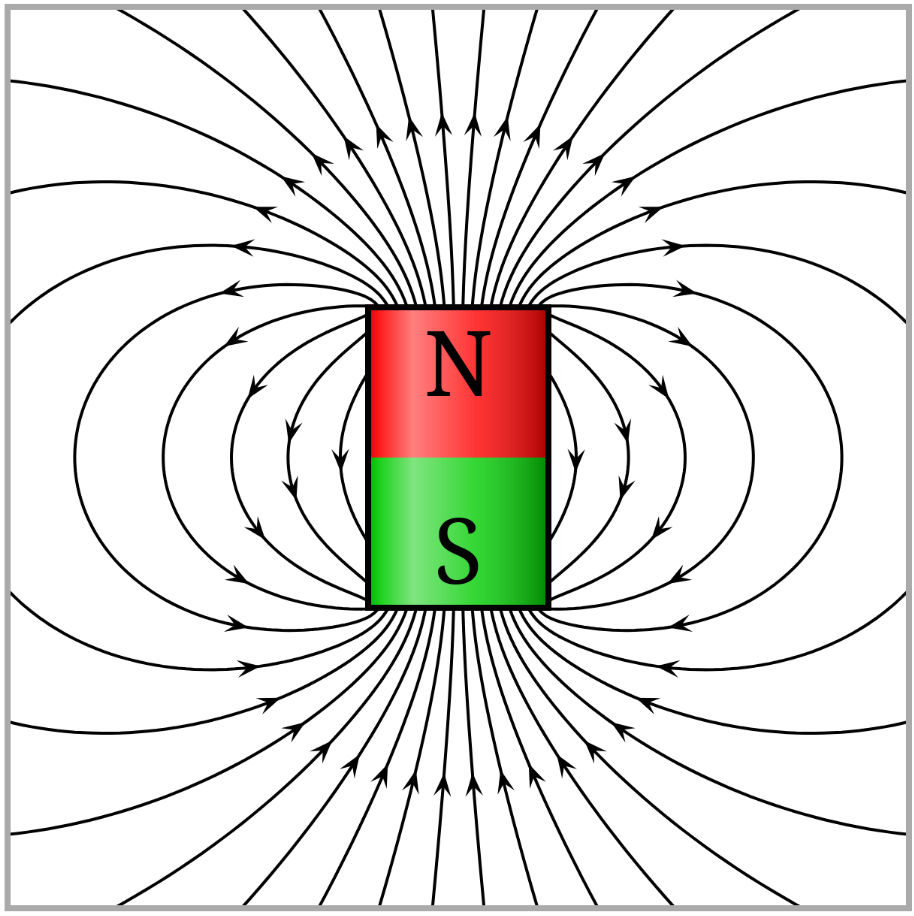 (By Geek3 - Own work,This file was derived from: Ironfilings cylindermagnet.svg This file was derived from: Magnet compasses.svg, CC BY-SA 4.0, https://commons.wikimedia.org/w/index.php?curid=88524982)
(By Geek3 - Own work,This file was derived from: Ironfilings cylindermagnet.svg This file was derived from: Magnet compasses.svg, CC BY-SA 4.0, https://commons.wikimedia.org/w/index.php?curid=88524982)
Or done an experiment where you visualize the magnetic field lines with iron filings like this
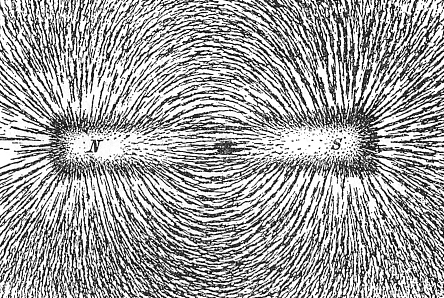 (Public domain, Newton Henry Black, Harvey N. Davis (1913) Practical Physics, The MacMillan Co., USA, p. 242, fig. 200)
(Public domain, Newton Henry Black, Harvey N. Davis (1913) Practical Physics, The MacMillan Co., USA, p. 242, fig. 200)
These lines represent the shape of the magnetic field. The way you can interpret them is that if you place a compass in the field, the compass will align with the field lines at that point. And the closer the lines are to each other, the stronger the magnetic field is in that area. Also, magnetic field lines always form closed loops. They appear to end at the poles of a magnet, but actually they continue on inside the magnet. They do however exit/enter the magnet at the poles.
"But Witchy," you may ask, "why are the lines so concentrated at the poles but then they spread out so much as they travel from one pole of the magnet to the other?" Excellent question my theoretical student XD.
This is I think the key point that was a bit of a eureka moment for me when I realized it a long time ago when I was studying this stuff: the magnetic field lines "want" to be as short as possible while also "wanting" to be as far apart as possible. And when I say want, it does actually behave a little bit like a desire, as the magnetic objects in this field will experience a magnetic force tryin gthe move the object to spread out the field lines and make them shorter.
Let's use this picture I grabbed from Wikipedia as an example:
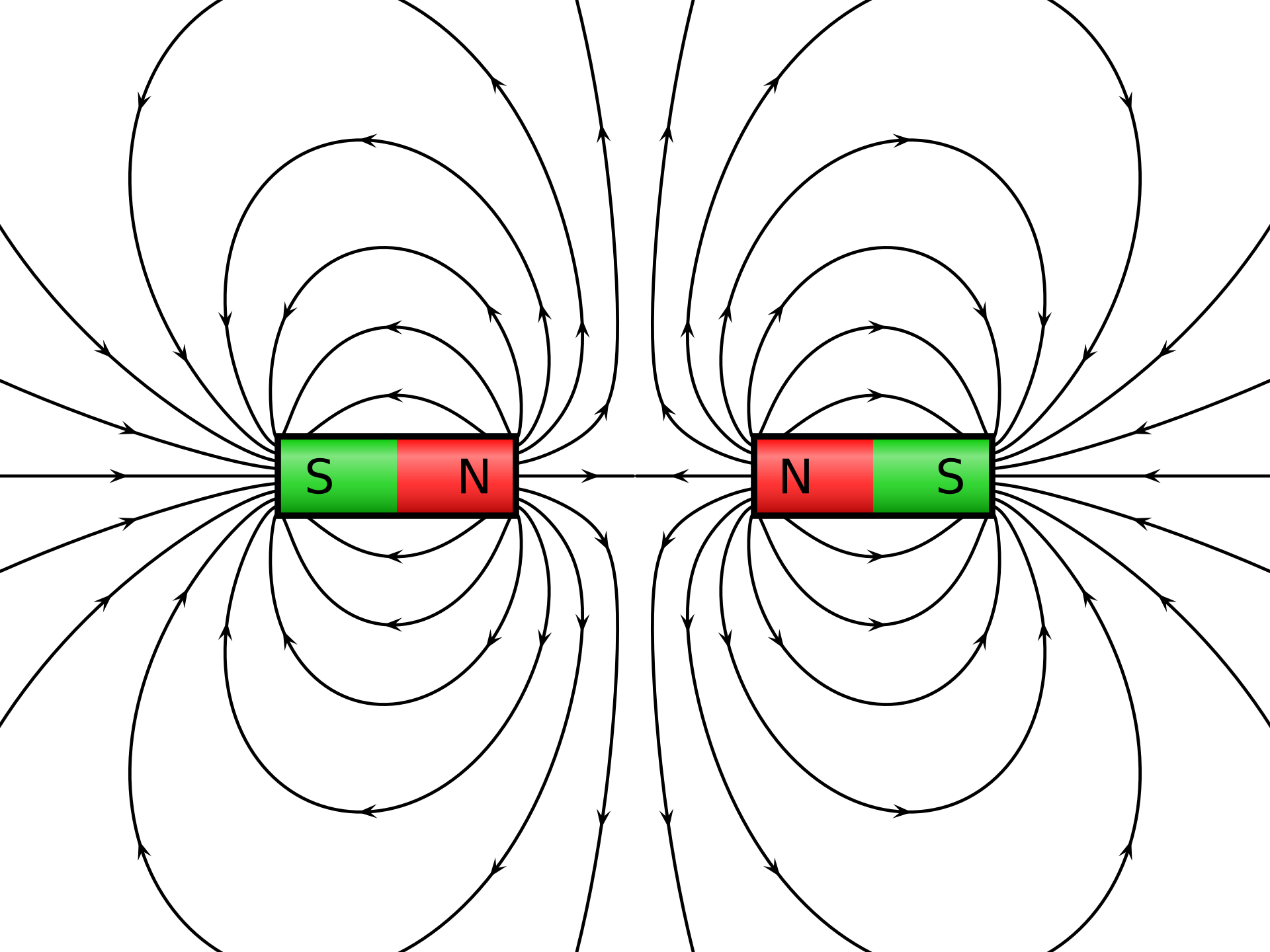 (By Geek3 - Own work, CC BY-SA 3.0, https://commons.wikimedia.org/w/index.php?curid=10555891)
(By Geek3 - Own work, CC BY-SA 3.0, https://commons.wikimedia.org/w/index.php?curid=10555891)
the bar magnet creates a strong magnetic field at the poles, which means lots of magnetic field lines are squeezed closely together at the poles where they enter/exit the magnet. These lines don't want to be so tightly packed together, so they immediately start spreading out but also immediately start curving towards the opposite pole to try to keep the distance short. If you then try to bring the north pole of another bar magnet close to the north pole of this one, both have magnetic field lines coming out trying to get to their respective south poles, but now even more tightly packed together as you bring the magnets together. Since the magnetic field lines don't want to be so close together, both magnets experience a force pushing each other away so that the magnetic field lines aren't being pushed together so tight.
Similarly, if the south pole of one bar magnet is brought near the north pole of another, the magnetic field lines exiting the north pole of one want to go to the south pole, but the closest south pole is the south pole of the other magnet being brought close, so now the lines go through both magnets before looping back around:
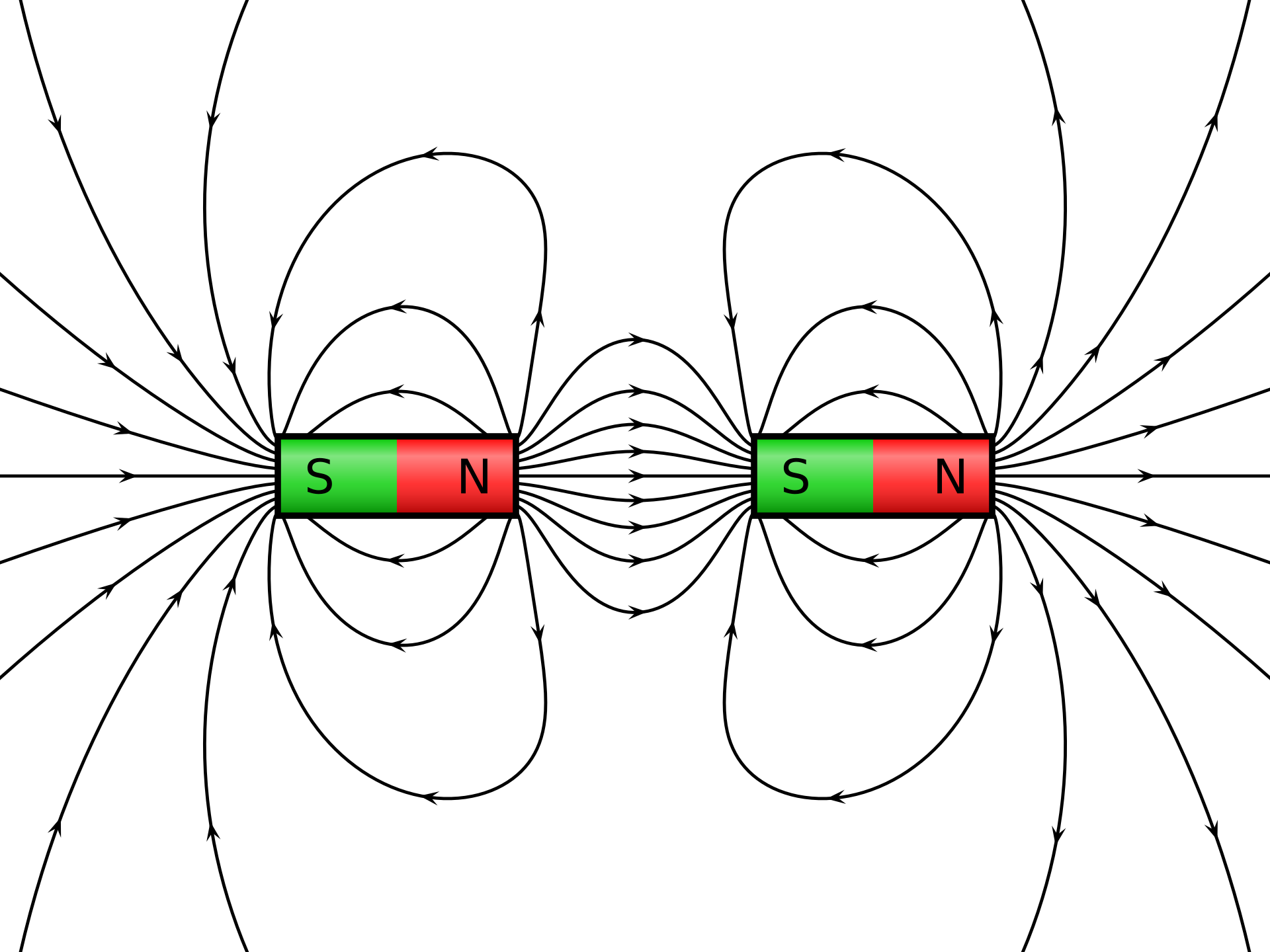 (By Geek3 - Own work, CC BY-SA 3.0, https://commons.wikimedia.org/w/index.php?curid=10515628)
(By Geek3 - Own work, CC BY-SA 3.0, https://commons.wikimedia.org/w/index.php?curid=10515628)
However, between the closest poles of the two magnets, the lines are still concentrated but will try to spread out between the poles. Since the lines want to be as short as possible and don't want to spread out, the magnetic field exerts a force on the bar magnets pulling them together, since that would shorten the lines between the poles down to pretty much nothing.
Finally, a few of you may have been wondering what determines how much the magnetic field lines want to spread out vs shorten. These two tendencies are in opposition pretty much all the time, since spreading the lines out more requires making them longer. This is determined by something called the magnetic permeability which is a property of the materials that the field is passing through (even air or a vacuum). High permeability materials tend to concentrate the magnetic field lines more and allow them to get shorter, while low permeability materials tend to force the lines to spread out and lengthen. Examples of materials with high permeability are iron, cobalt, and other magnetic or ferromagnetic materials. Low permeability are pretty much anything that doesn't experience force in a magnetic field, so most things.
Post thumbnail attribution: (By Omegatron - Own work, CC BY-SA 3.0, https://commons.wikimedia.org/w/index.php?curid=640068)
Anyway I hope some of you enjoyed this rant or find the information here useful. I can talk about magnets all day so feel free to hit me up if you want, though my inbox will be overflowing for the next week I'm guessing.
Enjoy the Mega!
Join our public Matrix server! https://matrix.to/#/#tracha:chapo.chat
As a reminder, be sure to properly give content warnings and put sensitive subjects behind proper spoiler tags. It's for the mental health of not just your comrades, but yourself as well.
Here is a screenshot of where to find the spoiler button.

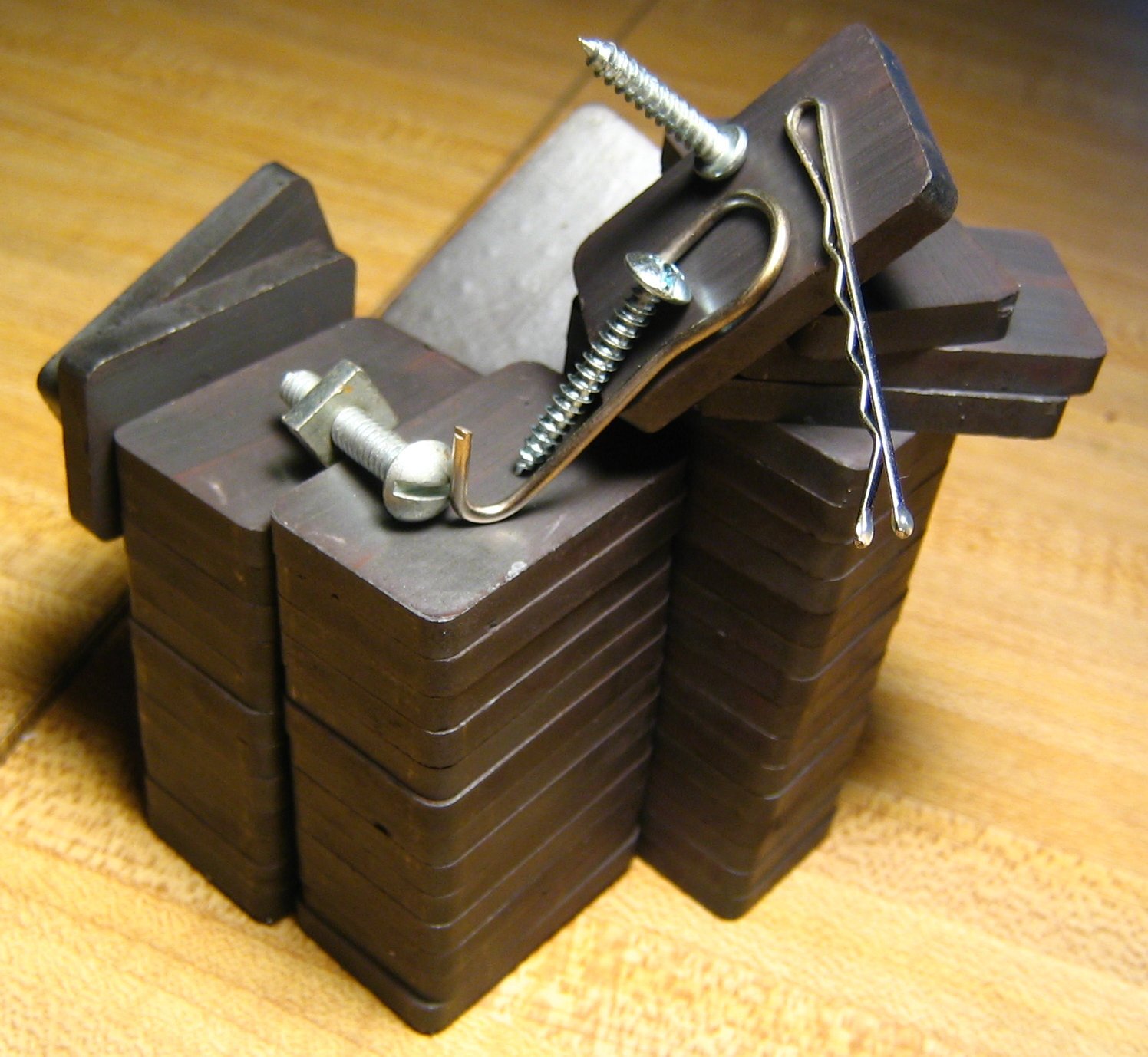

Winning ᕙ(͡°‿ ͡°)ᕗ